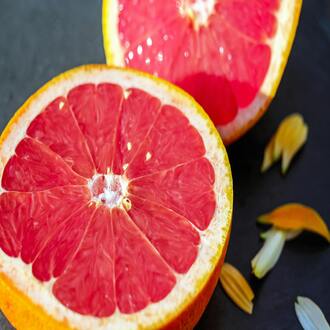Transcription Recommended foods for athletes (Ii)
Vegetables
Vegetables are rich in water, vitamins and mineral salts, with low carbohydrate, protein and fat content. Like fruits, they contain substances that have antioxidant properties, capable of preventing the formation of free radicals, protecting the body against aging, heart disease and some types of cancer.
Vitamins contained in vegetables:
- All the vitamins of group b, except vitamin b12.
- Vitamin c.
- Vitamin a equivalents. Especially in broccoli (turnip greens or rapini), spinach and bell peppers.
- Vitamin e.
Minerals contained in vegetables: calcium, iron, iodine, magnesium, zinc, sodium, potassium, phosphorus, and selenium. Vegetables should be included in the diet alternating raw and cooked forms of culinary preparation. These foods should be preserved from contact with air, heat, water and light, in order to reduce the loss of vitamins and minerals contained in them.
Main nutritional characteristics of tomatoes:
- A serving of 150 grams of tomato provides 31 kilocalories.
- Tomatoes contain only 1% protein.
- The fat content of a 150 gram serving of tomato is practically nil: 0.2 grams.
- It contains only 3.5% of carbohydrates.
- A portion of 150 grams provides 2 grams of fiber.
Contains the following minerals: calcium, iron, iodine, magnesium, zinc, sodium, potassium, phosphorus and traces of selenium. Contains all the vitamins of group b except vitamin b12; contains, vitamin c, vitamin a vitamin e equivalent and vitamin k.
Dairy products
Dairy products are essential in the athlete's diet, being always present at breakfast and in at least two more meals throughout the day. When whole or skim milk is consumed, it becomes more digestible if some type of mixed cereal is added and it is taken in small gulps, accompanied by some biscuit, slice of bread or portion of cookies.
Yogurts, cottage cheese and curds, which are healthier dairy products, should be included in the regular diet. In addition, flan, ice cream, custard and more elaborated cheeses, which are less recommended products due to their high levels of added sugars and saturated fats, can be planned on an occasional basis.
Athletes who suffer from lactose intolerance are recommended to drink yogurt instead of milk; yogurt has minimal amounts of lactose, so it is usually tolerated without difficulty. In general, the nutritional composition of yogurt is similar to that of milk.
Main nutritional characteristics of milk:
- Milk provides 149 kilocalories per serving of 225 grams consumed.
- Milk contains 88.1% water, 5% carbohydrates and 3.3% protein of excellent quality.
- Milk is the main source of calcium, and also contains other minerals such as iron, iodine, magnesium, zinc, sodium, potassium, phosphorus, and selenium.
- It contains vitamin b1, vitamin b2, vitamin b3 equivalents, vitamin b6, vitamin b9, vitamin b12, vitamin c, vitamin a, traces of vitamin d, vitamin e and vitamin k.
Meats
Athletes should consume between 1.2 and 1.7 grams of protein per kilogram of body weight per day. Proteins of animal origin are recommended, since they have a high biological value. Proteins should intervene in the growth of the muscular mass and in the replacement of the muscular degradation that takes place as a consequence of the intense exercise.
Main nutritional characteristics of veal:
- A portion of 150 grams of veal provides 197 kilocalories.
- Veal contains 20.7% of proteins of high biological value.
The fat content of a 150-gram serving of veal is as follows:
- Total fat: 8.1 grams.
- Total saturated fat: 3.29 grams.
- Total monounsaturated fats: 3.60 grams.
- Total polyunsaturated fats: 0.53 grams.
Contains the following minerals: calcium, iron, magnesium, zinc, sodium, potassium, phosphorus and selenium. Contains vitamin b1, vitamin b2, vitamin b3 equivalents, vitamin b6, vitamin b9, vitamin b12, traces of vitamin a, traces of vitamin d, vitamin e and vitamin k.
Fish
Fish are rich in high quality and easily digestible proteins. They have a lower fat content than meat, so their energy value is also lower. Oily fish contain unsaturated fatty acids, precursors of substances associated with very favorable effects on the health of the population in general and athletes in particular.
Main nutritional characteristics of salmon:
- A 200-gram serving of salmon provides 244 kilocalories.
- Salmon contains 18.4% of proteins of high biological value.
The fat content of a 200-gram serving of salmon is as follows:
- Total fat: 16.1 grams.
- Total saturated fat: 2.89 grams.
- Total monounsaturated fats: 7.28 grams.
- Total polyunsaturated fats: 2.55 grams.
- Total omega-3 fatty acids: 2.19 grams.
Main nutritional characteristics of salmon:
- Contains the following minerals: calcium, iron, iodine, magnesium, zinc, sodium, potassium, phosphorus and selenium.
- Contains vitamin b1, vitamin b2, vitamin b3 equivalents, vitamin b6, vitamin b9, vitamin b12, vitamin a, vitamin d and vitamin e.
Eggs
Eggs are a first class food because of their high biological value proteins, vitamins, minerals and fatty acids, and also because of their energetic contribution of approximately 84 kilocalories for each medium-sized egg unit.
The white: represents 62% of the total volume of the egg, it is considered as an aqueous solution containing 10% of various proteins, it also contains other components in very small quantities.
The yolk: represents about 30% of the total volume of the egg. The fats contained in the yolk include a high content of monounsaturated fatty acids, although it also contains about 5% cholesterol. The yolk also contains vitamins and minerals.
Main nutrition
athletes foods recommended ii




